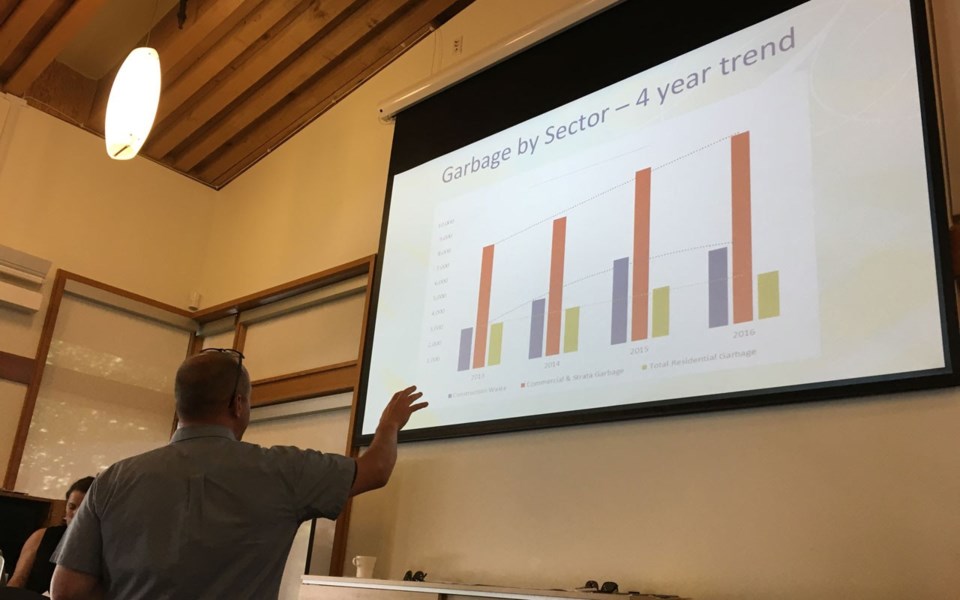Almost one year after the Resort Municipality of Whistler (RMOW) updated its Solid Waste Bylaw, education efforts are ongoing throughout the community.
The new bylaw requires all businesses and stratas to separate waste into three streams (food-scrap organics, recyclables and landfill waste).
Food service businesses are also required to submit a Solid Waste Management Plan as part of their business license application.
The Association of Whistler Area Residents for the Environment (AWARE), in conjunction with the RMOW, has been hosting workshops for businesses and stratas as the bylaw's one-year grace period is set to expire.
After Sept. 21, the RMOW will start handing out fines to those found to not be in compliance.
"We've had positive responses (to the workshops)," said waste management manager Andrew Tucker after one such session on June 21.
"People that show up to these workshops have been coming out of there with new information, and are very happy ... there's lots of work, but they're keen to get going on it, which is really encouraging."
Some of the common concerns from the business and strata communities revolve around having enough space for the required sorting, and educating guests coming from places with very different rules around recycling.
"Once people see the variety of tools that have been created to help them, they're reassured by that," said Claire Ruddy, executive director of AWARE.
"They appreciate things like the free downloadable signage, the guides that actually take you step by step through, so I think that's reassuring that there's been good resources created."
All of the resources—including a comprehensive solutions guide and colour-coded, downloadable signage—can be found for free at www.whistler.ca/wastereduction.
The solutions guide is broken down into five sections: making the business case for improving waste management; identifying areas for improvement; understanding options for waste segregation infrastructure; training staff and building on-going monitoring; and reviewing purchasing to reduce waste and simplify segregation.
"The easiest way to kind of manage waste as a business or as an individual is to not produce it in the first place, but it's also to try and streamline all the different kinds of waste that you are producing," Ruddy said.
"So if we have multiple different products, we have to find homes for all those multiple different products, whereas if we could consolidate, by (changing our) purchasing choices, the amount of different waste types we are producing, then that makes it easier for us to have less bins around, but it also makes it easier for our team to identify what goes where."
It's interesting to note that retail food stores and foodservice in B.C. lose an estimated $1.3 billion worth of food per year, 57 per cent more than the estimated profit in those sectors.
Garbage produced by the commercial and strata sector has been steadily increasing over the past four years, and now makes up about 64 per cent of all waste produced locally—but the hope is the new bylaw will help curb that trend.
"The business of the resort has gone up, so when you look at it on a per-person basis, it has dropped slightly," Ruddy noted. "People are starting to question things like the prolific use of single-use items, and I think there's a culture shift coming around the way that we think about waste ... as a community, we do have a goal of becoming zero waste, so the responsibility is on all of us to figure out what we can do to help towards that goal."




